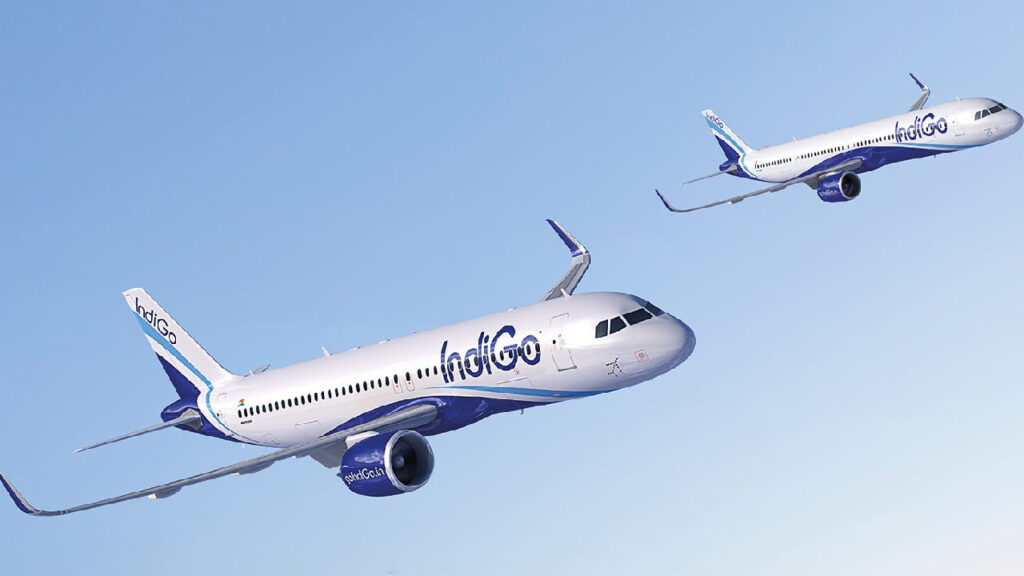Business
IndiGo Breaks Record with Airbus Jet Purchase Said WSJ News
WSJ News—IndiGo, the Indian low-cost airline, has reached an agreement to purchase 500 Airbus jets, marking a milestone in the history of commercial aviation deals as travel rebounds from the pandemic. The firm order encompasses the A320 family of narrow-body aircraft, and the deal’s total value stands at approximately $50 billion, based on the most recent list prices before customary discounts, which can exceed 50%.
As global airline traffic rapidly approaches pre-pandemic levels, Airbus and Boeing face challenges in meeting the soaring demand. Carriers are now placing orders for delivery as far as 12 years into the future, a significant extension compared to previous industry booms.
The announcement of IndiGo’s firm order took place on the opening day of the Paris Air Show, an annual trade show in the aviation industry renowned for major deals unveiled by Airbus and Boeing.
Pieter Elbers, CEO of IndiGo, emphasized the growth potential of the Indian aviation market highlighted by this deal. The acquisition will more than double IndiGo’s existing fleet, which currently consists of approximately 300 aircraft. Deliveries of the newly ordered planes are scheduled between 2030 and 2035.
Elbers stated, “We believe there’s still plenty of room to grow domestic and even more so international.” This sentiment reflects the airline’s confidence in the expanding Indian aviation sector.
Get Wall Street Journal Digital and The Economist 3-Year Combo for $89
The IndiGo deal surpasses the number of aircraft ordered by Air India, a smaller Indian carrier, which previously announced plans to purchase a total of 470 planes from both Airbus and Boeing. However, they have not yet finalized the Air India deal.
The substantial commitments to aircraft reflect the surge in air travel demand following the worst of the Covid-19 pandemic. Aircraft manufacturers have been grappling with supply chain disruptions and regulatory hurdles, leading to delays in jet deliveries.
Airbus currently outpaces Boeing in terms of jet production. Both companies have a backlog of thousands of orders extending over several years.
Guillaume Faury, CEO of Airbus, emphasized the company’s focus on increasing the monthly production rate of A320-family planes to 75 while maintaining stability. Faury remarked, “It’s completely premature to think beyond 75. It’s already a good challenge.”
Get Bloomberg and WSJ Digital Subscription 5 Years for $129
IndiGo, India’s largest airline and the largest in Asia outside China has set ambitious goals. The company aims to transport over 100 million passengers in fiscal year 2024, compared to 86 million passengers in the previous year. For context, Southwest Airlines carried 127 million passengers in the same period.
The Indian carrier has a track record of placing significant orders, and this latest deal brings its total number of agreed purchases from Airbus to over 1,300 jets. IndiGo returned to profitability last year and plans to double in size by the end of the decade.
According to forecasts by Airbus and Boeing, the industry will require over 40,000 new jets in the next 20 years, with half of them needed for growth and the remaining for replacements. Targets to reduce greenhouse gas emissions and mitigate climate change factors drive this demand, in part.
Industry insiders view India as a crucial market, rivaling China, due to its growth potential and relatively less mature aviation sector.
Andy Cronin, CEO of Avolon, one of the world’s largest aircraft lessors, stated that Indian airlines currently operate approximately 800 modern jetliners, compared to 3,600 in China. Avolon leases over 20 jets to IndiGo and identified India as a market of interest for plane manufacturers. However, the country’s hot climate and unique geography have posed challenges for engine manufacturers.
According WSJ News, IndiGo has faced persistent issues with the Pratt & Whitney GTF engines
installed in a significant portion of its existing fleet, resulting in over 30 aircraft being out of service. The airline has turned to CFM’s Leap engines, a joint venture between General Electric and Safran, for some of its orders. The airline did not disclose details regarding the engines to be used in the latest order.
New engine designs from CFM and Pratt & Whitney have shown improved fuel consumption, but they have proven more challenging and expensive to maintain than initially anticipated, leading to a global shortage that has impacted new aircraft production said WSJ News.
Pratt & Whitney, a division of RTX, outlined plans on Monday to enhance the performance of its engines. “The fleet is not where it needs to be,” said Pratt & Whitney President Shane Eddy during an investor event in Paris, where Raytheon Technologies announced its rebranding as RTX.

